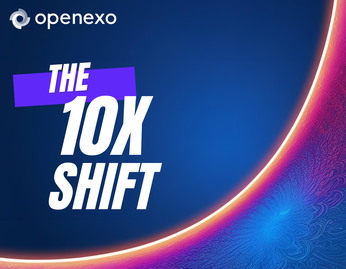
Dashboards: Revolutionizing Educational Decision-Making and Performance Tracking
Modern educational dashboards are revolutionizing how institutions and students monitor, analyze, and improve performance, offering real-time, actionable insights that surpass traditional reporting methods.
In the fast-evolving landscape of education, the exponential attribute of Dashboards is emerging as a powerful tool for transforming how institutions and students monitor, analyze, and improve their performance and outcomes. Far beyond traditional reporting methods, modern educational dashboards provide real-time, actionable insights that are reshaping decision-making processes and driving innovation in learning environments.
Redefining Educational Metrics
The true power of dashboards in education lies not just in their ability to display data, but in the innovative metrics they track. While traditional educational dashboards might focus on enrollment numbers, test scores, and attendance rates, forward-thinking institutions are leveraging dashboards to monitor a more holistic set of indicators aligned with their transformative purposes.
For instance, some institutions are now tracking:
- Student engagement levels in real-time during online lectures
- Personalized learning progress across multiple subjects
- Indicators of student well-being and mental health
- Cross-disciplinary collaboration among faculty members
- Innovation metrics such as new course development and research output
- Community impact measures for service-learning initiatives
These non-traditional metrics provide a more comprehensive view of an institution's performance and progress toward its core mission.
Empowering Students through Personal Dashboards
Perhaps one of the most significant impacts of dashboard technology in education is its ability to empower students with real-time insights into their own learning journey. Personal student dashboards are revolutionizing how learners track their progress, set goals, and make informed decisions about their education.
Key features of student-centric dashboards include:
- Real-time progress tracking across courses and learning objectives
- Personalized goal-setting and achievement monitoring
- Visualization of learning patterns and study habits
- Early warning systems for academic challenges
- Recommendations for additional resources or support services
A study by the Journal of Learning Analytics found that students who regularly engaged with personal learning dashboards showed a 12% improvement in course performance compared to those who did not [1].
Real-Time Decision Making
The real-time nature of modern dashboards enables educators, administrators, and students to make data-driven decisions with unprecedented speed and accuracy. For example:
- Instructors can adjust their teaching methods mid-lesson based on live student engagement data
- Administrators can reallocate resources instantly in response to shifting enrollment patterns
- Student support services can proactively reach out to at-risk students based on early warning indicators
- Students can adjust their study strategies based on performance analytics and predictive models
A study by the Education Advisory Board found that institutions using real-time dashboards for student success initiatives saw a 5-15% increase in retention rates over those using traditional reporting methods [2].
Personalized Learning Pathways
Dashboards are playing a crucial role in the shift towards personalized learning. By aggregating data from multiple sources—including learning management systems, adaptive learning platforms, and assessment tools—dashboards can provide a comprehensive view of each student's progress, strengths, and areas for improvement.
This granular level of insight allows for the creation of truly personalized learning pathways. A recent pilot program at Arizona State University used dashboard technology to create adaptive course recommendations, resulting in a 7% improvement in course completion rates [3].
Fostering a Culture of Continuous Improvement
The implementation of comprehensive dashboards is fostering a culture of continuous improvement in educational institutions and among students. By making key performance indicators visible and accessible to all stakeholders, dashboards create a shared sense of purpose and progress.
For example, Purdue University's Signals project uses dashboard technology to provide students with real-time feedback on their academic performance. This transparency has not only improved student outcomes but has also increased engagement with support services by 67% [4].
Challenges and Future Directions
While the potential of dashboards in education is immense, there are challenges to overcome. These include:
- Ensuring data privacy and security
- Training staff, faculty, and students to effectively interpret and act on dashboard data
- Avoiding over-reliance on quantitative metrics at the expense of qualitative insights
- Continuously refining metrics to ensure they align with evolving educational goals
- Addressing potential anxiety or stress among students due to constant performance monitoring
As artificial intelligence and machine learning technologies advance, the next generation of educational dashboards will likely incorporate more sophisticated predictive analytics, offering even more proactive and prescriptive insights for both institutions and students.
In conclusion, the exponential attribute of Dashboards is fundamentally changing how educational institutions operate, make decisions, and drive improvement, while simultaneously empowering students to take control of their learning journey. By providing real-time, holistic insights aligned with transformative purposes, dashboards are enabling a more responsive, effective, and innovative approach to education for all stakeholders.
Bodily, Robert, and Katrien Verbert. "Review of research on student-facing learning analytics dashboards and educational recommender systems." IEEE Transactions on Learning Technologies 10.4 (2017): 405-418. https://ieeexplore.ieee.org/document/8010828 ↩︎
Erickson, Varick L. "Proceedings of the International Conference on Frontiers in Education" Computer Science and Computer Engineering (FECS). Athens. 2019. https://www.proquest.com/docview/2277978241 ↩︎
Arizona State University. "Adaptive Learning Dashboard Pilot Program Report." 2022. https://content.onlinexperiences.com/FileLibrary/4705/40/Case_Study_Adaptive_Courseware_at_Arizona_State_University.pdf ↩︎
Arnold, Kimberly E., and Matthew D. Pistilli. "Course Signals at Purdue: Using Learning Analytics to Increase Student Success." Proceedings of the 2nd International Conference on Learning Analytics and Knowledge. 2012. https://dl.acm.org/doi/10.1145/2330601.2330666 ↩︎
Practical Examples: Dashboards in Action
To better understand the impact of dashboards in education, let's examine some real-world applications from both user and company perspectives.
User Perspective
- Canvas Student App: Canvas, a popular learning management system, offers a mobile app that provides students with a personalized dashboard. Students can view upcoming assignments, track their grades, and receive push notifications for course announcements. This real-time access to information helps students manage their time effectively and stay on top of their coursework. Canvas Student App
- Blackboard Predict (now Anthology): Blackboard's predictive analytics tool gives students insights into their academic performance and potential risks. Students can view their progress across courses, compare their performance to anonymized peer data, and receive personalized recommendations for improvement. Blackboard Predict
- Tableau for Students: Tableau offers free licenses to students, allowing them to create interactive dashboards for visualizing and analyzing their academic data. This hands-on experience not only helps students track their progress but also builds valuable data literacy skills. Tableau for Students
Company Perspective
- Civitas Learning: Civitas Learning provides institutions with comprehensive analytics dashboards that integrate data from various campus systems. Their platform helps identify at-risk students, measure the impact of student success initiatives, and optimize resource allocation. Civitas Learning
- Intelliboard: Intelliboard offers advanced analytics and reporting solutions for learning management systems. Their dashboards provide institutions with insights into student engagement, course effectiveness, and overall institutional performance. Intelliboard
- Anthology (formerly Campus Management): Anthology's CampusNexus platform includes powerful dashboard capabilities that help institutions manage the entire student lifecycle. From admissions to alumni relations, their dashboards provide real-time insights to support data-driven decision-making. Anthology
- Watermark: Watermark's educational intelligence platform offers dashboards for assessment planning, curriculum management, and institutional effectiveness. Their tools help institutions align learning outcomes with strategic goals and demonstrate the impact of their educational programs. Watermark
These examples demonstrate how dashboards are being implemented across various aspects of education, from individual student learning to institutional management. By providing real-time, actionable insights, these tools are empowering both learners and educators to make more informed decisions and drive continuous improvement.
As dashboard technology continues to evolve, we can expect to see even more sophisticated applications that leverage artificial intelligence and machine learning to provide predictive and prescriptive analytics. This ongoing innovation will further enhance the ability of educational institutions and students to achieve their goals and adapt to the changing landscape of education.
Imagine if you could predict the future and make informed strategic decisions that drive your organization towards success. Join Dr. Ja-Nae Duane, a renowned behavioral scientist, entrepreneur, and angel investor, as she delves into the transformative power of AI-driven foresight and predictive analytics.
Come see Dr. Ja-Nae Duane & Salim Ismail at the Exponential Executive Program
When: Monday - Friday / 7th - 11th October 2024
Where: In Person - Austin, Texas
Join us for a transformative five-day event in partnership with the Texas Tribune. The Exponential Executive Program explores the world-changing impact of exponential technologies like AI, blockchain, and solar energy. Learn from leading pioneers, achieve 10x breakthroughs, and turn disruption into opportunity. With limited in-person and online seats, apply now to elevate your organization and harness the power of these groundbreaking innovations.
Apply Now 👉️ https://web.openexo.com/exponential-executive-program/
ExO Insight Newsletter
Join the newsletter to receive the latest updates in your inbox.








